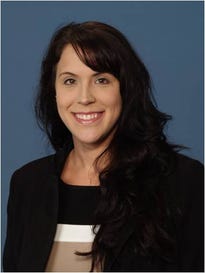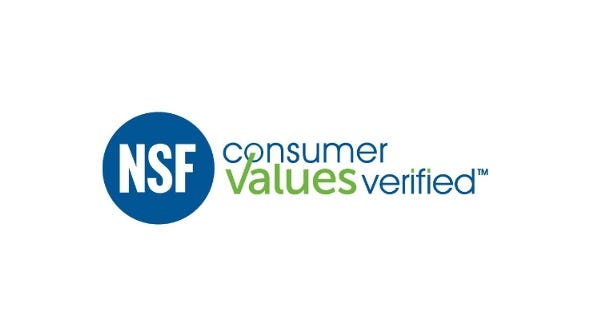October 3, 2015


Jaclyn Bowen
 For today’s conscientious consumers, unsubstantiated packaging claims and marketing schlock just don’t fly. They want proof that a product truly is non-GMO, gluten free, vegan or halal. And increasingly, third-party seals provide that assurance. To help manufacturers navigate the often-complex processes of achieving in-demand certifications, and to get more verified products in front of your customers, NSF International recently launched its new Consumer Values Verified program. Director Jaclyn Bowen gives us the lowdown.
For today’s conscientious consumers, unsubstantiated packaging claims and marketing schlock just don’t fly. They want proof that a product truly is non-GMO, gluten free, vegan or halal. And increasingly, third-party seals provide that assurance. To help manufacturers navigate the often-complex processes of achieving in-demand certifications, and to get more verified products in front of your customers, NSF International recently launched its new Consumer Values Verified program. Director Jaclyn Bowen gives us the lowdown.
What is the main mission of CVV?
Jaclyn Bowen: We hold brand promises true by filling in the credibility gap between on-package claims and retailer and consumer expectations. When you lift up the hood on claims like gluten free or non-GMO, what is the integrity behind them?
How does Consumer Values Verified work?
JB: We provide manufacturers with a depth of knowledge, guidance and assurance in various verification processes. NSF International is already in so many facilities doing food-safety audits that we felt it would be easy to add on a Non-GMO Project verification audit or a gluten-free audit for these manufacturers. We also provide True Source Honey and kosher certifications, and we’ll be adding more options very soon that cater to consumers’ core value areas. So many pillars of food safety, such as documentation control and cleanliness, are also core components of making sure a facility has the ability to maintain a gluten-free or non-GMO status, for instance. So it’s a natural fit. We think we can really help relieve audit fatigue.
Is the marketplace hungry for these extra assurances?
JB: We saw a need for this type of verification because, nowadays, when it comes to products, consumers want to know it all. Social media is contributing to the overload of product information out in the public domain. When consumers hear about product attributes, they want even more details, and they want to be able to trust that information. Whenever there’s an increase in consumer interest in a particular attribute, it creates opportunities for potential new revenue streams for manufacturers and retailers. But it also increases the propensity for fraud. Manufacturers will cut corners.
What should natural products retailers know about this program?
JB: Retailers play such an important role in establishing consumer trust. It’s not just about selling products but about giving the necessary scrutiny to the products they stock. Just look at the New York attorney general’s investigation into herbal supplements and how not just manufacturers but retailers were held responsible for allegedly mislabeled products. In helping to verify products, we fill in the gap so consumers are protected, as are the retailers who sell these products.
Can CVV also help ensure the quality of retailers’ private-label products?
JB: Retailers should make sure their contract manufacturers are accredited and that their claims are verified. Given the emergence of consumer interest in private-label brands, these types of substantiated label claims can become key market differentiators and offer retailers protection for their own brand products.
About the Author
You May Also Like
.png?width=700&auto=webp&quality=80&disable=upscale)



